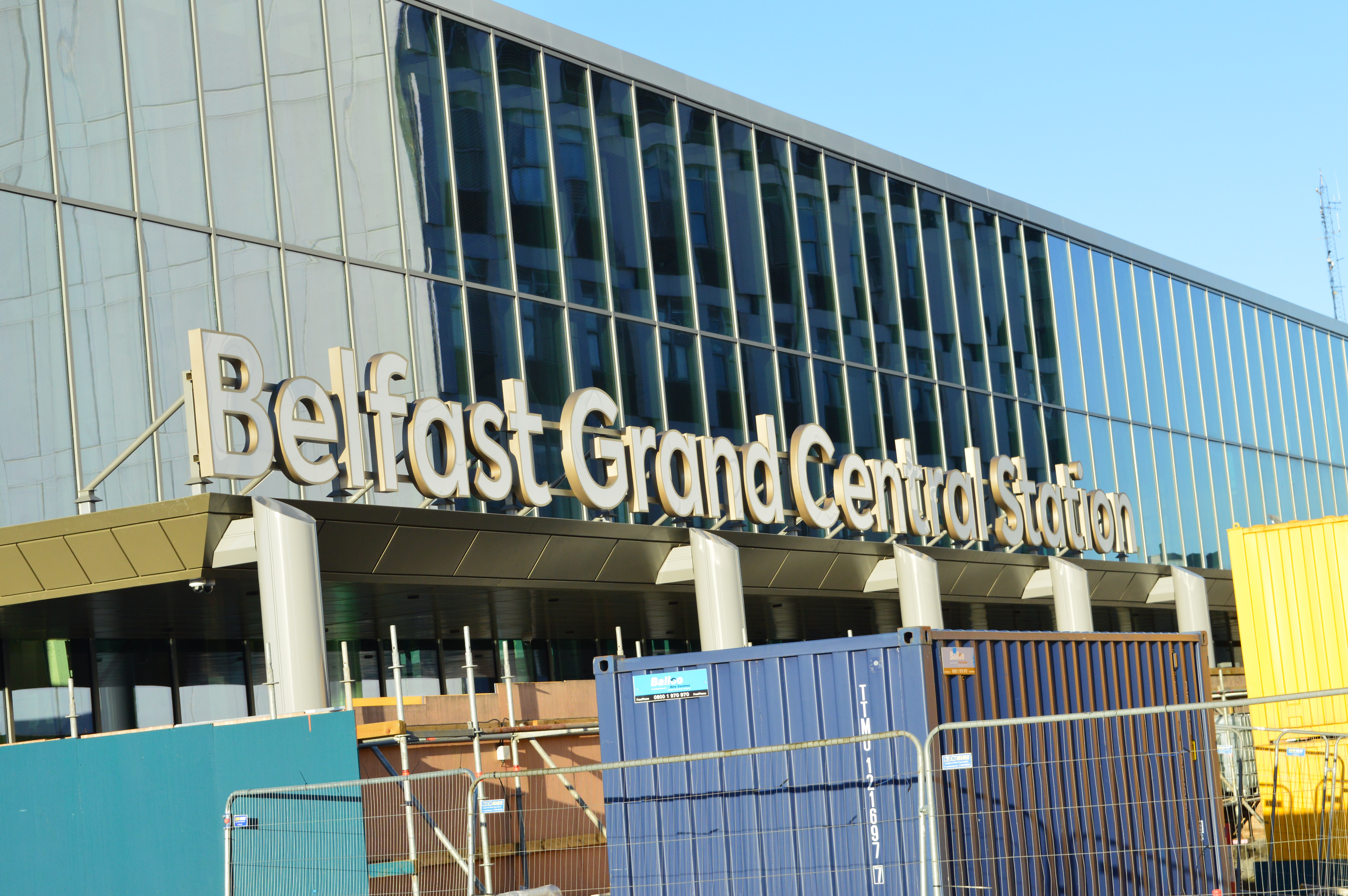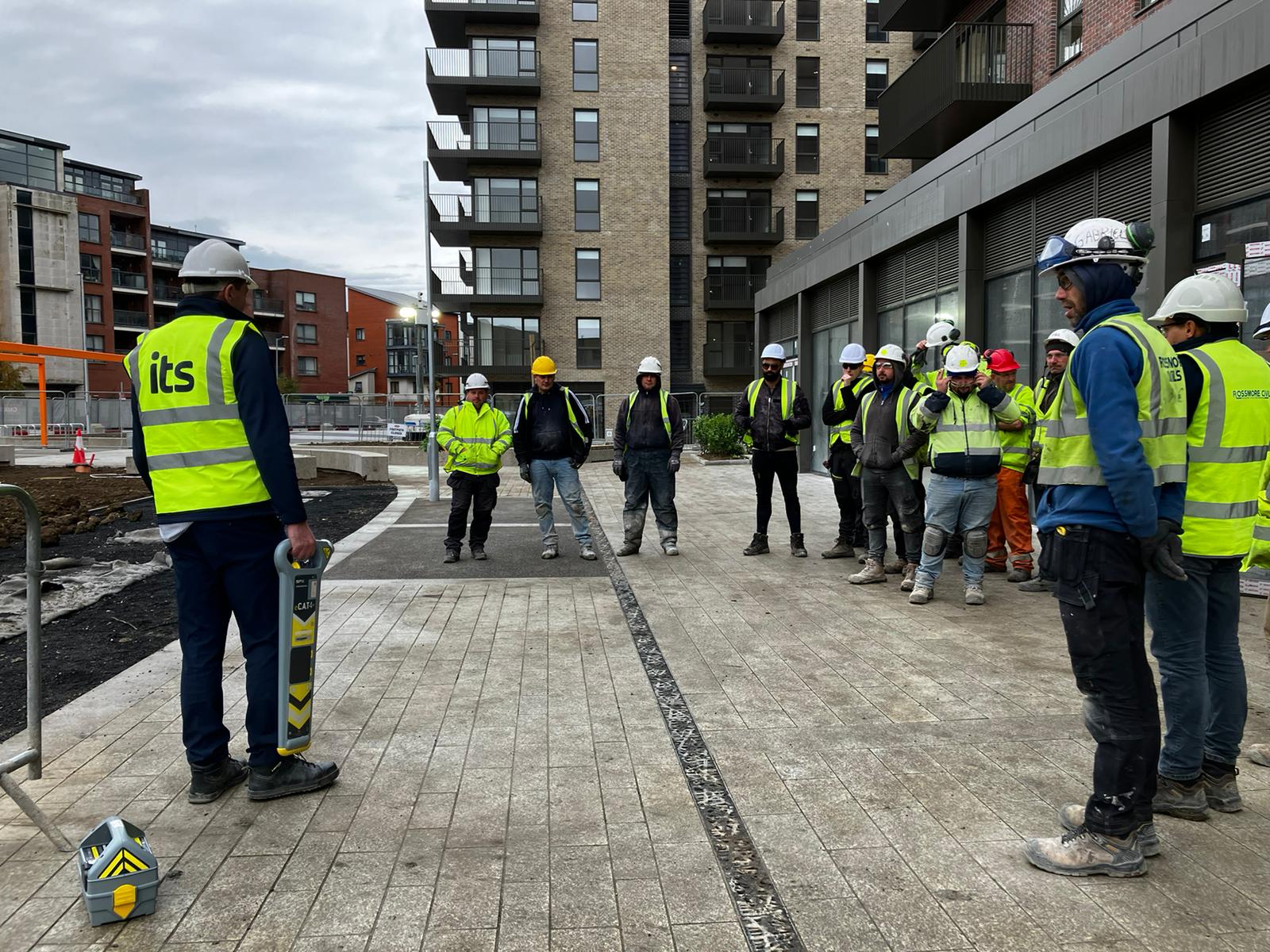We were delighted to recently deliver our Confined Space: Safe Entry, Breathing Apparatus, and Self-Rescue Training on-site for Belton Construction Services at the brand-new Grand Central Station in Belfast. This exciting training opportunity combined classroom-based learning with practical, hands-on experience in our state-of-the-art mobile training unit, offering a comprehensive and engaging approach to confined space safety.
A Partnership at “Game Changer” Site
The new Grand Central Station, which opened after four years of construction, is a milestone for Northern Ireland’s public transport system and is now the largest integrated transport hub on the island of Ireland. Replacing both Great Victoria Street Station and the Europa Bus Centre, it is expected to serve around 20 million customer journeys each year. Partnering with Belton Construction Services at such a site was a privilege and reflects a joint commitment to supporting industry professionals with top-tier training.
Comprehensive Training for Real-World Safety
Confined Space training with ITS blends classroom-based theory and practical exercises designed to equip participants with the skills and knowledge required for future confined space work. The practical component was held in our mobile training unit, which boasts a 30 m tunnel network with smoke simulation to create a realistic and challenging training environment. Candidates donned full breathing apparatus, practiced safe entry techniques, and rehearsed rescue scenarios to ensure they are prepared for the demands of real-world situation.
Why Choose Our Confined Space Mobile Training Unit?
Our mobile training unit brings industry-leading training directly to your site, reducing costs, disruption, and administration while delivering exceptional value. Key benefits include:
- On-Site Convenience: We come to you, anywhere in Ireland, saving time and resources.
- Accredited Training: Participants receive accredited training from experienced industry practitioners, earning 1 CPD point for every hour completed.
- Realistic Simulations: Our 30m tunnel network, equipped with smoke, provides a safe yet realistic environment for hands-on learning.
- All Equipment Provided: From harnesses and tripods to breathing apparatus and monitors, we supply everything needed, eliminating hire costs.
- Quick Setup: The unit is operational in just 15 minutes, minimising downtime and disruption to business.
Building a Safer Future
The training at Grand Central Station continues to highlight the importance of equipping teams with the skills needed to navigate high-risk environments safely. By delivering this training in a practical, engaging manner, we ensure that participants leave confident and capable.
We are proud to play a role in fostering safety excellence at such a pivotal new site for Northern Ireland’s infrastructure and look forward to supporting more projects with our comprehensive training solutions.
If your organisation is looking for on-site training solutions that deliver results, get in touch with us today. Together, we’ll build a safer workplace, no matter where your site is located!







